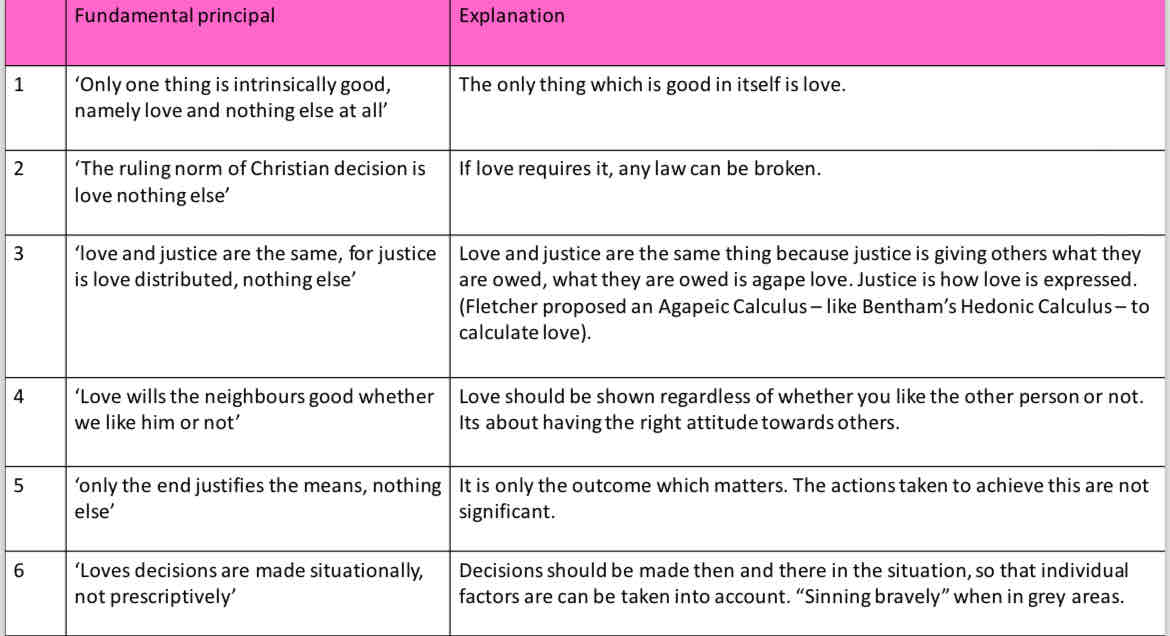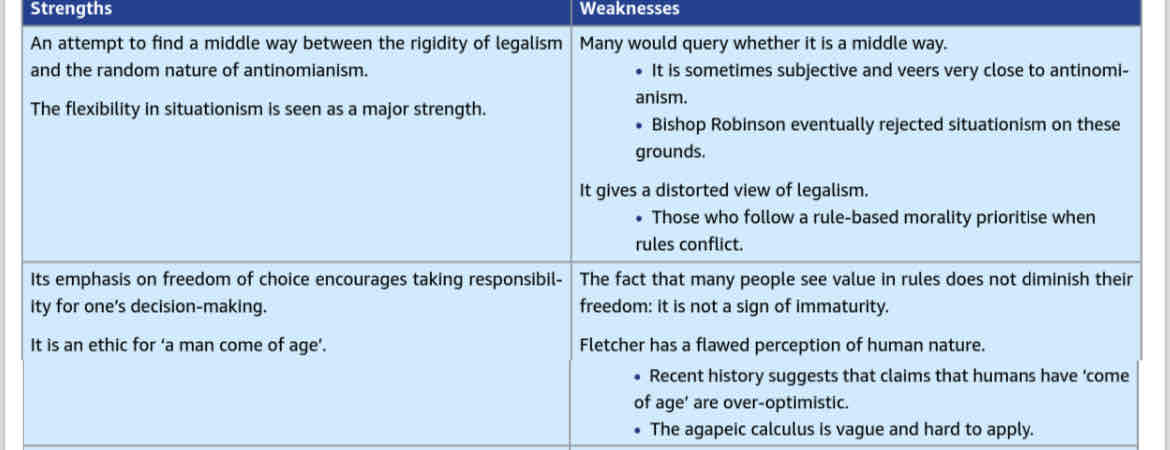Situation Ethics (Normative ethical theories part 2/3) AQQ A Level Religious Studies
1/8
Earn XP
Description and Tags
Name | Mastery | Learn | Test | Matching | Spaced | Call with Kai |
|---|
No analytics yet
Send a link to your students to track their progress
9 Terms
Who was Joseph Fletcher?
1905-1991.
• American philosopher.
• Most modern of the philosophers on
this part of the course.
• He was writing during the social
turbulence of the 1960’s.
• He once was a devout Christian but
turned his back on religion and became
an atheist.
• Was a supporter of abortion and
euthanasia.
What is antinominalism?
The view that there are no moral laws or rules. People should act spontaneously in each situation to decide what is right
What is situationism?
Fletcher argues that
situation ethics is not
antinomianism because
individuals have ‘the
ethical maxims of his
community and its
heritage’ to draw on It
does not become
legalism because these
maxims can be
abandoned if agape
love is better shown
another way
What is legalism?
The view that morality
is based on laws or
commands that must
always be followed.
What are the four working principles?
Pragmatism. An action should work to maximise love. If it does not, then it has no value.
Relativism. Everything is relative to the situation.
Positivism. Ethical norms are judgements and not rational. Just as you don’t rationally justify your favourite music, art and so on. For Fletcher, God comes first, a bit like Anselm when he says “I believe so that I may understand”.
Personalism.
People take priority over rules. People are to be loved, not rules.
For Christian Situation Ethics, “Imago Dei” (in God’s image) is an
important thing to remember about humanity.
What are the six working principles?

What is agapaic calculus?
The way we can determine what actions bring about the most love
What are the strengths and weaknesses of his argument? (Part 1)

What are the strengths and weaknesses of his argument? (Part 2)
